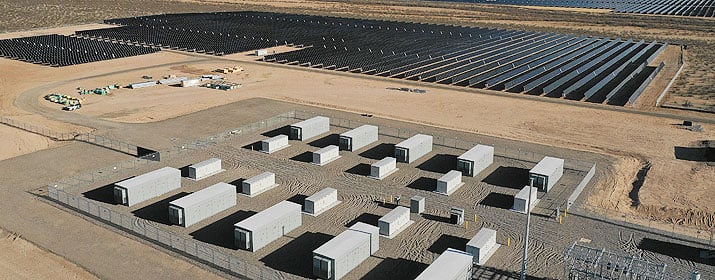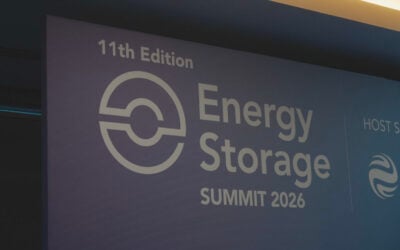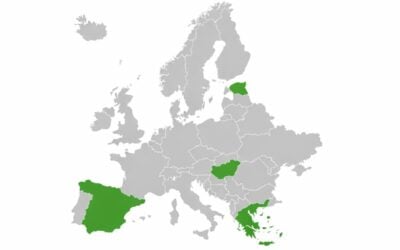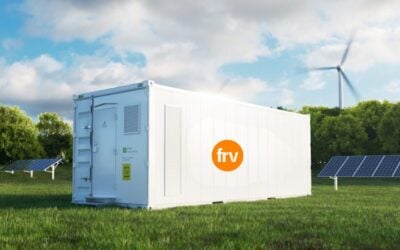
Tucson Electric Power (TEP), a utility company in the US state of Arizona, plans to own and operate a 200MW/800MWh battery storage system.
TEP serves around 442,000 customers in the city from which it takes its name and is owned by Canadian investor-owned gas and electricity holding company Fortis.
The utility’s new project, Roadrunner Reserve, will be a lithium-ion battery energy storage system (BESS) equipped with lithium iron phosphate (LFP) chemistry cells, sited in southeast Tucson. The project will be carried out by DEPCOM Power, a construction engineering firm headquartered nearby and in the portfolio of Koch Engineered Solutions. Technology providers were not named in a TEP release.
Although it is expected to be a standalone energy storage facility, its aim is to enable greater utilisation of Arizona’s abundant solar resources to charge from the local grid in the morning and afternoon when generation is at its most productive.
Try Premium for just $1
- Full premium access for the first month at only $1
- Converts to an annual rate after 30 days unless cancelled
- Cancel anytime during the trial period
Premium Benefits
- Expert industry analysis and interviews
- Digital access to PV Tech Power journal
- Exclusive event discounts
Or get the full Premium subscription right away
Or continue reading this article for free
It will then output to the grid from the 4-hour duration of the batteries’ stored energy when TEP customers’ demand for energy peaks.
Project aligned with 2020 Integrated Resource Plan
As with other regulated utilities across the US, TEP files long-term planning documents, called Integrated Resource Plans (IRP) at regular intervals. IRPs will have a big role in setting the goals of utility deployment of energy storage, as well as other resources, as can be seen from recent news coverage of US utilities Georgia Power and Ameren Missouri on Energy-Storage.news.
While the company prepares to launch its 2023 IRP in November, the most recent previous edition, from 2020, contained goals of reducing carbon emissions by 80%, making solar and wind 70% of its generation mix and adding up to 1,400MW of energy storage by 2035.
TEP said Roadrunner Reserve is aligned with that 2020 IRP, and will make a significant contribution to pushing towards that goal. At present, there is just 51MW of grid-connected energy storage in the company’s service area. The company held an all-source RFP in 2022.
The biggest single facility so far, which Roadrunner Reserve will dwarf, is Wilmot Energy Center, a 30MW system paired with a 100MW solar PV array which came online in mid-2021. That project is owned and operated by an affiliate of NextEra Energy Resources, and supplies power to TEP through a long-term contract.
“Roadrunner Reserve will help us maintain reliability as we ambitiously but responsibly expand our community’s renewable resources. This new system will be particularly important in helping us satisfy peak energy needs during the summer,” TEP president and CEO Susan Gray said.
Another Arizona utility, Salt River Project, signed two deals last year that would bring it to 800MW of BESS in its service area by the middle of 2024, helping support it to integrate 2GW of solar PV onto its networks by the following year.
Arizona Public Service (APS), the state’s largest utility company, has signed a number of big third-party contracts with battery storage developers or owners this year, including a 20-year tolling agreement for a 255MW/1,000MWh BESS with Strata Clean Energy signed in May and another for a 1,200MWh project with Canadian Solar subsidiary Recurrent Energy, as reported by Energy-Storage.news in August.
While figures for APS’ battery storage under contract or in development were not readily available, those contracts were awarded as a result of an Arizona Public Service Request for Proposals (RFP) through which it solicited around 1GW of resources, with at least 800MW of that to be clean energy facilities.
APS is targeting reaching 65% renewable energy by 2030, with the company describing energy storage as one of the “pathways” to getting there, primarily for its role in integrating and shifting solar generation to when it is most needed.





